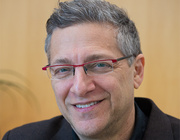Semester:
Offered:
Albert Einstein is the most famous figure in science, ever. Following his physics, cultural, philosophical, and political trajectory, this seminar aims to track the shifting role of science in the 20th and 21st centuries. This first-year seminar addresses Einstein's engagement with special and general relativity, quantum mechanics, Nazism, nuclear weapons, philosophy, the arts, and technology, and it raises basic questions about physics in its broader history. For students coming with backgrounds in arts, humanities, and social sciences, the seminar will link their interests to the sciences; for those more focused on physics in particular and science more generally, it will frame those interests within a broader context of war, architecture, and film. Did you know Einstein had a patent on a refrigerator? That he did a groundbreaking, delicate experiment about magnets while coming up with radical ideas about gravity, displacing Newton? That every time you flick on a navigation program to bike somewhere you are testing general relativity?
“Einstein Changes Our World” will present a mix of science (no prerequisites!—we get to the relativity of time, for example, with no more than the thought experiment of two mirrors and a flash of light) and the broader, relevant cultural surround. Some weeks will examine physics concepts, like curved space, or current work on black holes—while others will have us watching films or discussing the modernist poetry of William Carlos Williams that took off from relativity. Or we might be looking at the philosophical roots and philosophical consequences of Einstein’s works. At other times we will be fully engaged with historical and political questions: not least, the building, detonation, and proliferation of nuclear weapons. So: Why Einstein? Because his work is still changing our world.
